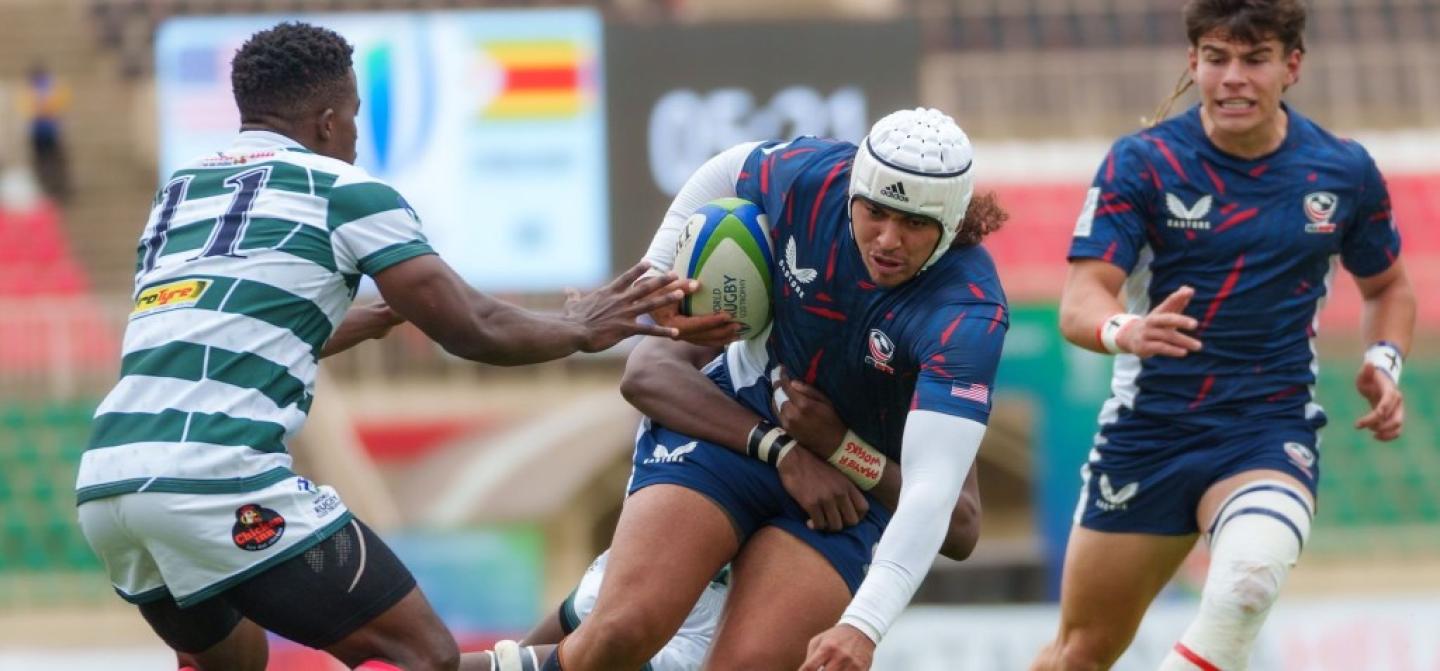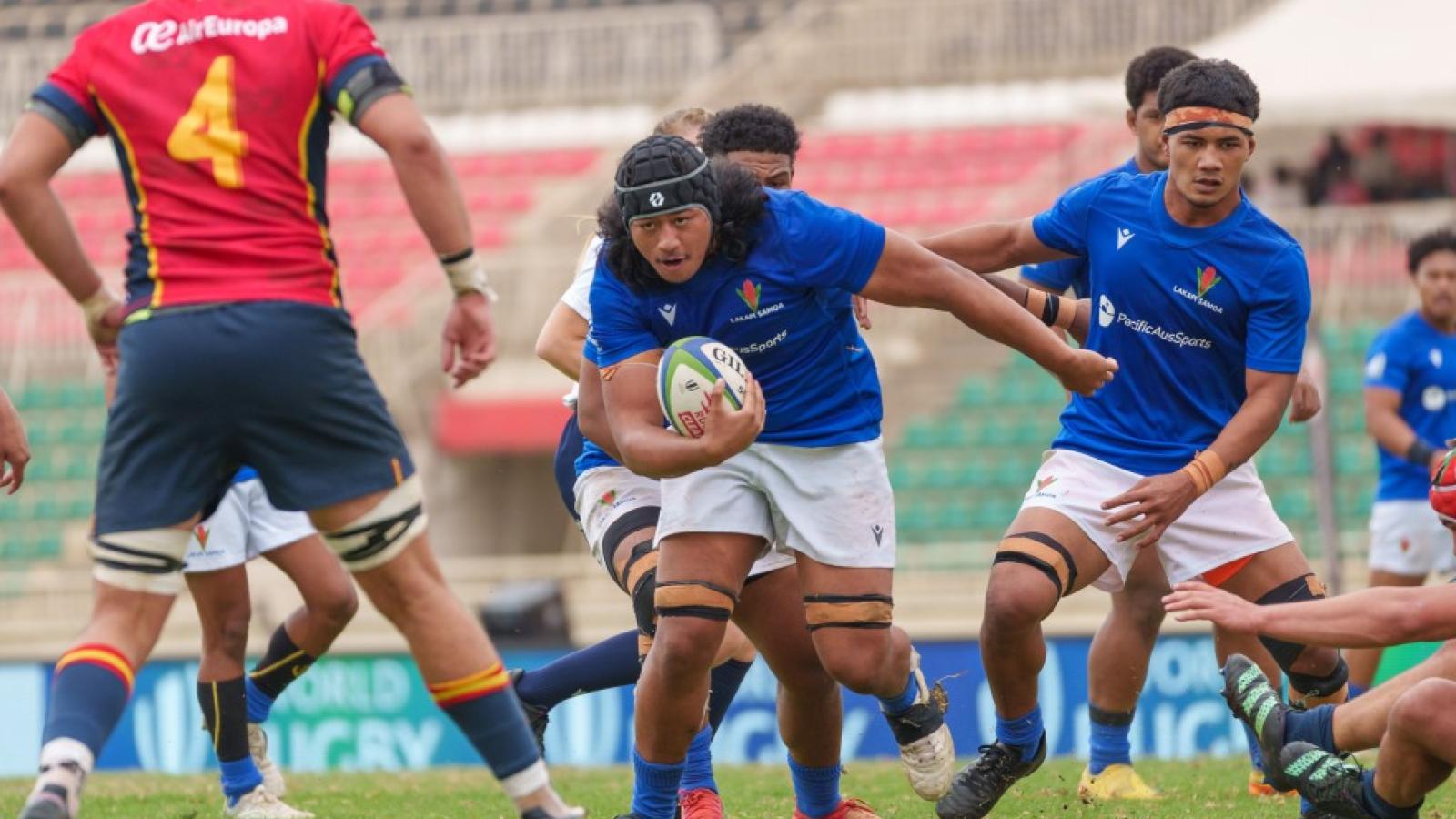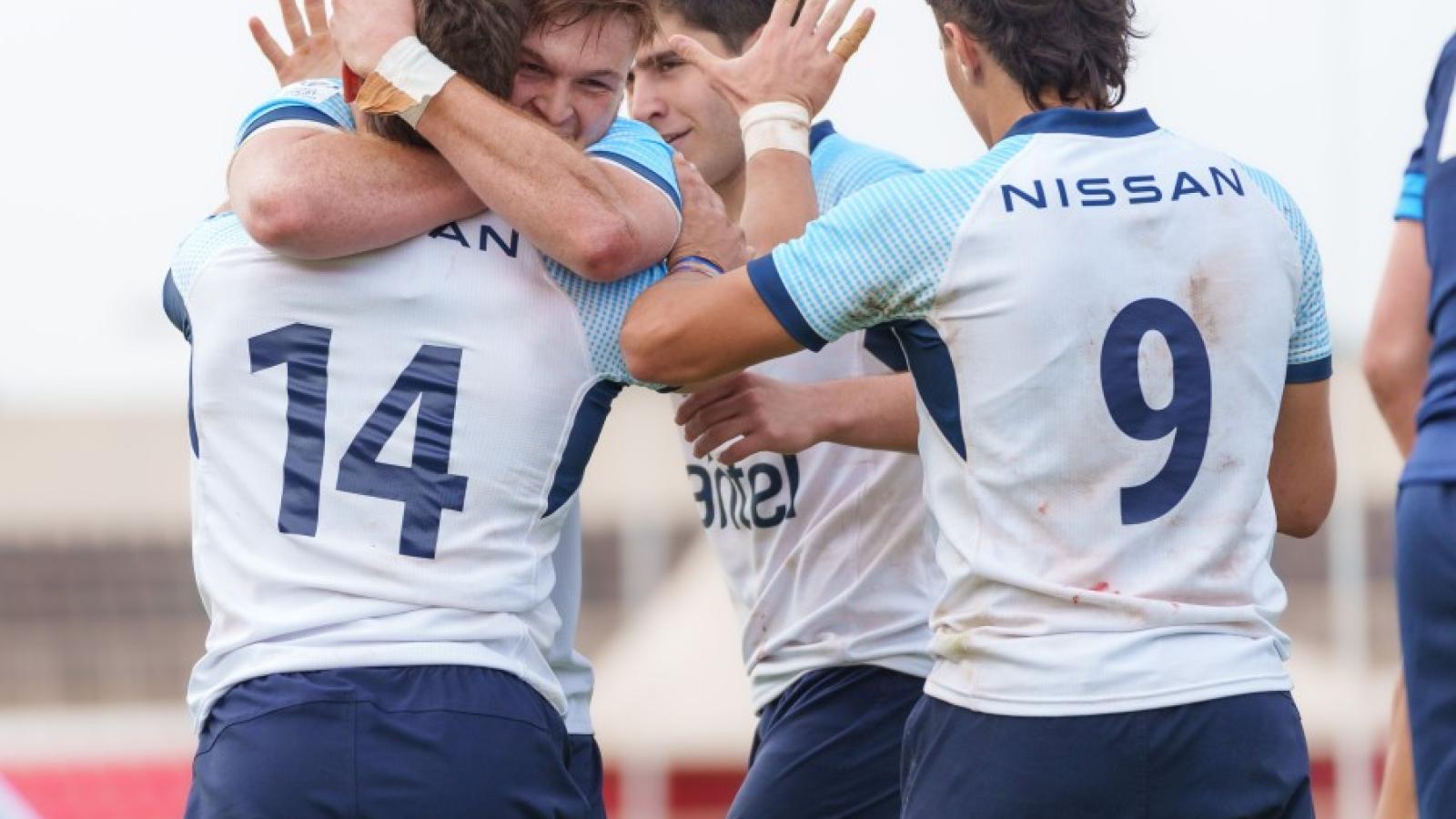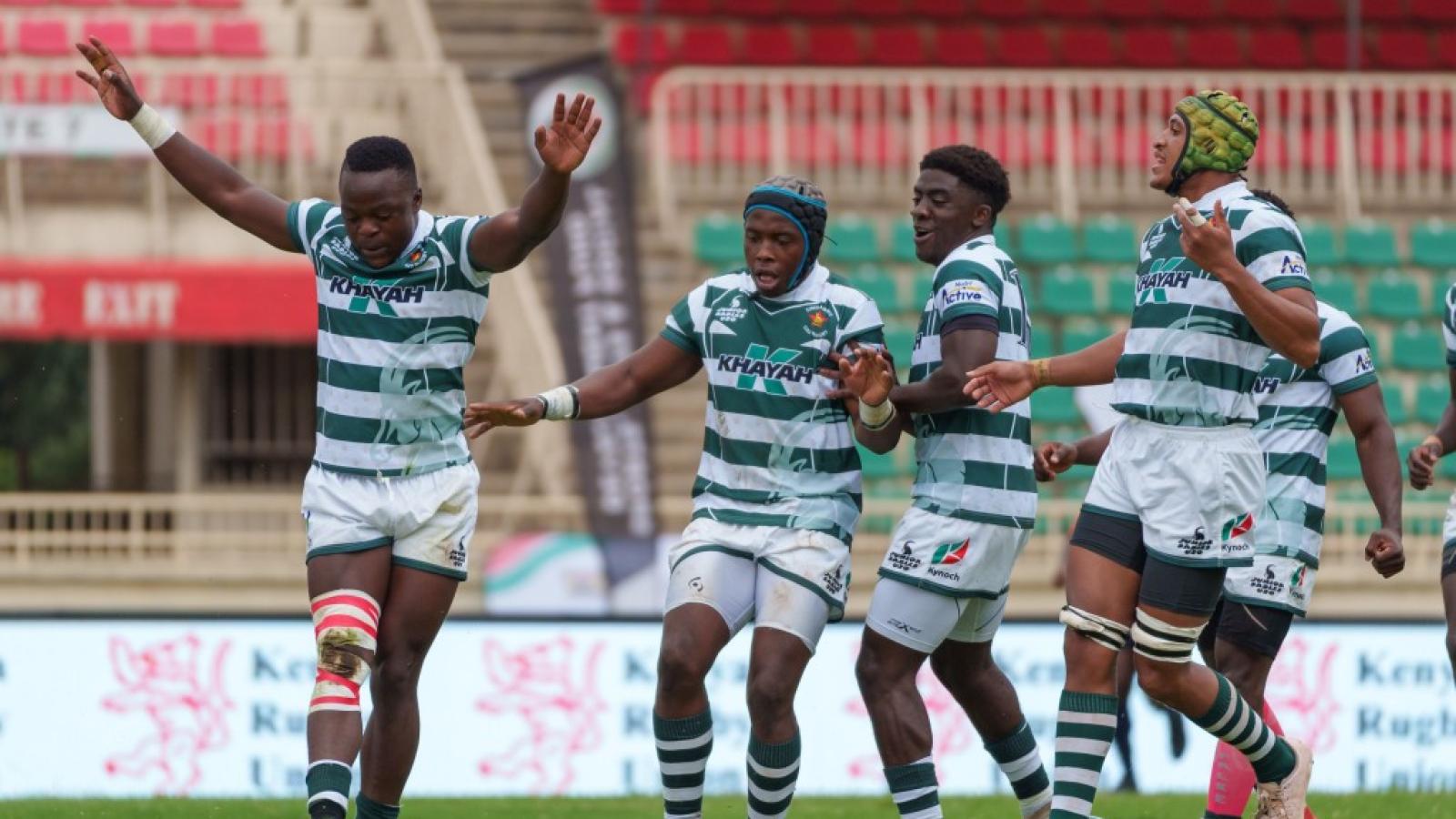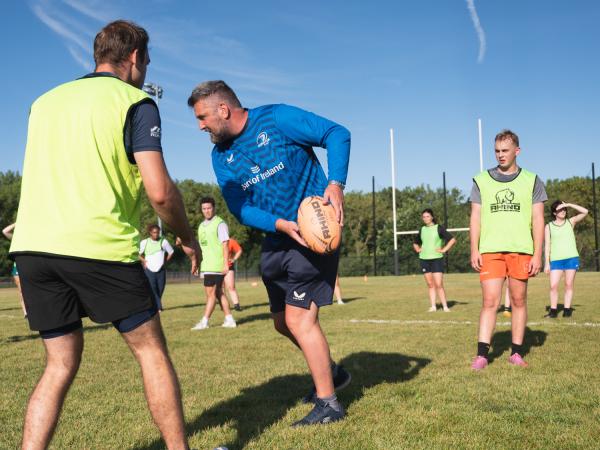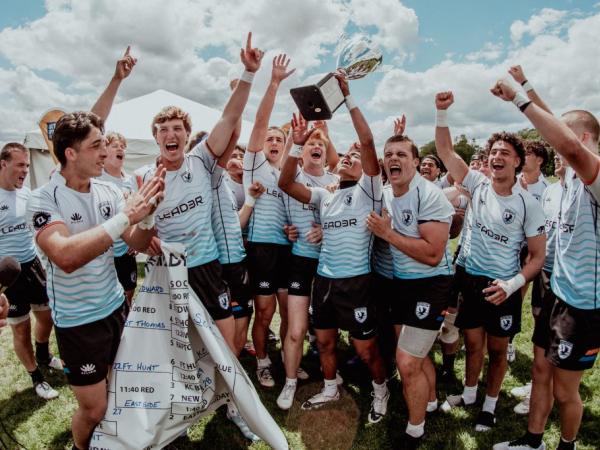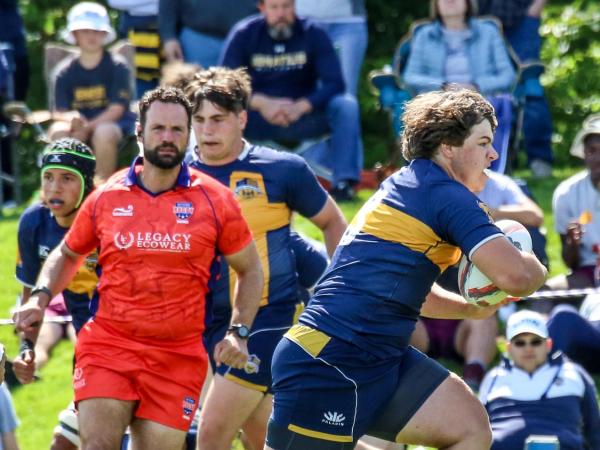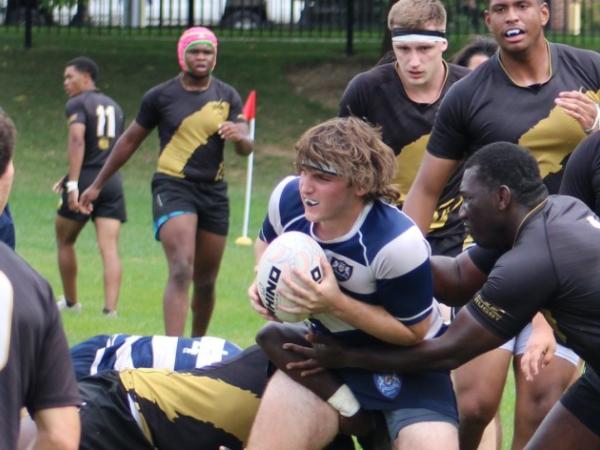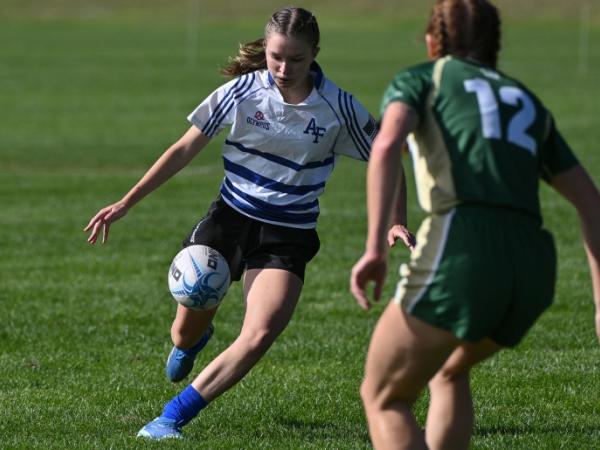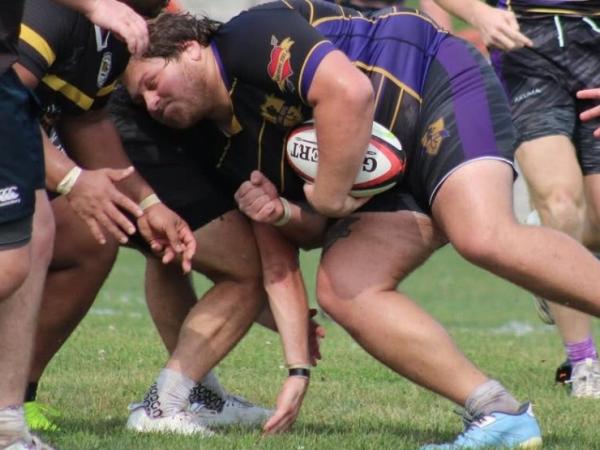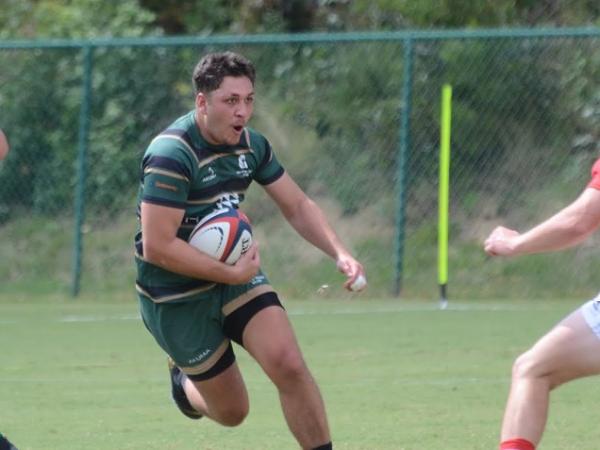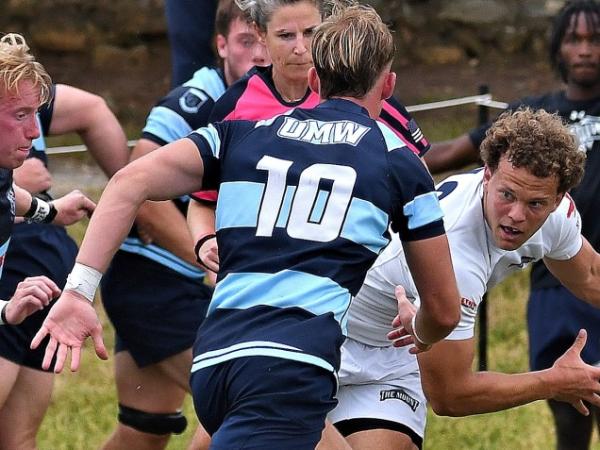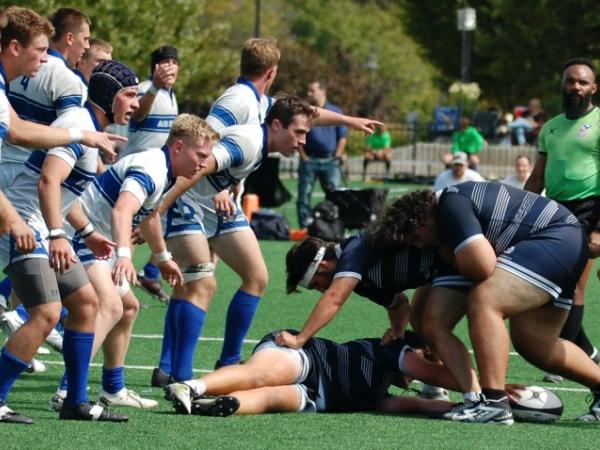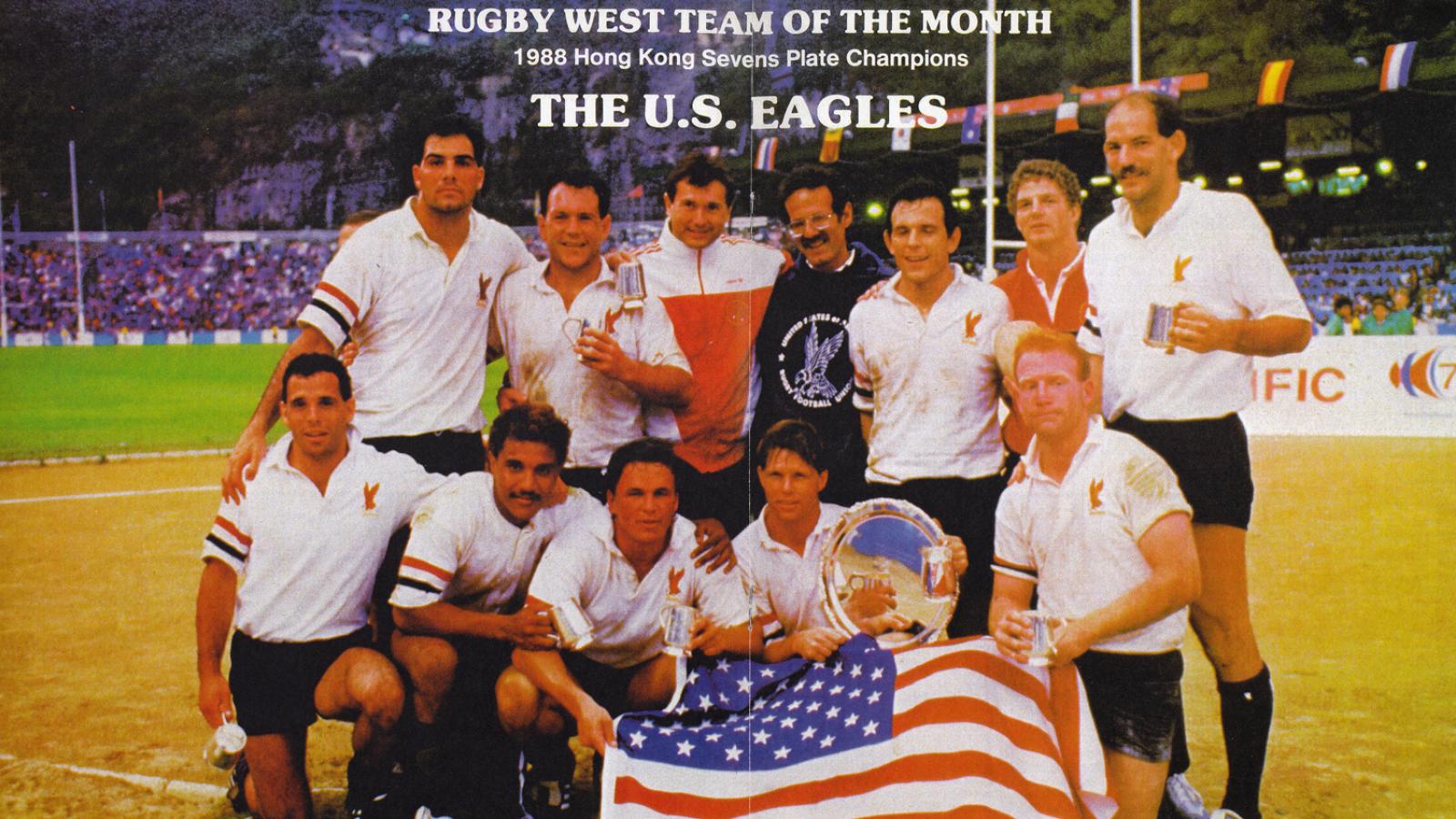Zimbabwe rode their pace and some USA mistakes to come back from 30-19 down to win the final pool game of the World U20 Trophy 38-37.
As has been the case through the tournament the USA started fairly well. Running with intent and hitting the breakdown hard the USA forced Zimbabwe into penalties that eventually led to a maul that drove inexorably over the line for Hayden McKay to touch down. Zimbabwe replied with a little show of the impressive speed their team has, but the USA defense hung in there long enough to turn the ball over and get on the front foot again.
Zimbabwe once again ran into penalty trouble, and that led to pressure at the tryline where prop John Wilson crashed over. Oliver Cline converted and it was 14-0. Back came the USA but this time they were undone by a penalty. Zimbabwe took some confidence from that and at 22 minutes opted for points on a penalty goal from Benoni Nhekairo to make it 14-3.
And then Zimbabwe started to play with the ball a bit more. They do have pace and their backs sliced up the USA team with scrumhalf Simba Kanyangarara capping off a brilliant attack involving three backs. Suddenly it was 14-10. The Junior Eagles now knew they were in a game if they didn't know already, and impatience and penalties would be trouble for them. What was clear was that the USA U20s could not exert the same sort of pressure they did in the early part of the game. A little hesitancy or just mistakes gave Zimbabwe an out. And Zimbabwe took them, with Nhekairo slotting two more penalties to take a 16-14 lead into halftime.
Nhekairo would make it 19-14 early in the second half, but after that the USA took the initiative. They took a lineout off a penalty right at the Zimbabwe 22 and mauled it in impressive fashion almost to the tryline. The effort was shoved into touch (USA was unlucky not to get a penalty for offside on the maul) but Zimbabwe's throw-in was called not straight and the Junior Eagles took their own lineout and mauled it over.
McKay once again touched it down and the game was tied 19-19. Cline's excellent conversion attempt nudged his side into the lead and the Americans did well to press their advantage, with Cline putting a penalty over from about 38 meters to make it 24-19 at 56 minutes. Some nice forward-back interplay got the USA back into Zimbabwe territory and another penalty was punished by Cline. When Zimbabwe forward Allan Mawunga cynically played the ball on the ground he was yellow-carded and Cline put the kick over for his third straight penalty.
The USA seemed in control at 30-19.
But 20 minutes is a long time and Zimbabwe's super power is being able to score tries from anywhere. So that's what they did. The USA was called for offside when Aisake Tukuafu picked up a ball that had been knocked on by a teammate. Was he offside? Yes. Could he reasonably have thought, in the melee of players around him, that he could pick up the ball? Certainly. It was a harsh call and a costly one as the USA was slow to retreat 10 meters and Zimbabwe tapped quickly, with reserve scrumhalf Shadreck Mandaza sniping through some slow-moving USA players before feeding Brendan Marume, who raced in to score. Nhekairo converted and now it was 30-26.
Many calls by referees in these games are very difficult. The play goes very quickly and so an accurate decision relies on very quick thinking. This call was clearly an error by referee Craig Chan. Yes the ball was knocked forward by USA No. 8 Aidan Christians, and yes Tukuafu picked it up while in front of Christians. However, the ball was clearly touched by a Zimbabwe player first, and when that happened referees almost always just award a knock-on and a scrum. In addition, there's a high standard for the offside call. In open play, yes, you call a penalty, but when bodies are flying around and a player doesn't know how the ball ended up at his feet, a good referee might tell him to leave it alone, or would just call for the scrum.
There is no way Tukuafu could have known a ball rolling around the way it was in that instance was not for him to pick up. An accurate call? Probably. The right call? Not at all.





